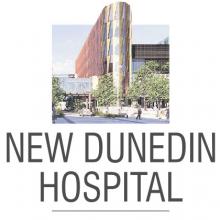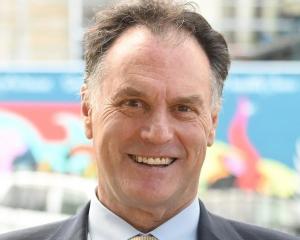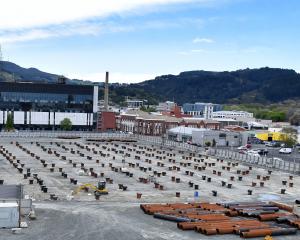
Short-term savings would soon be eaten up in an inflationary environment, the hospital would end up costing more to run and its functionality would be compromised, he said.
A redesign that forced a delay would "cost more than it saves".
"Spending more to build less is illogical," Mr Radich said.
Government moves to edge away from what was agreed in a final detailed business case, or delay some of its implementation, could shave $90 million off a projected $200 million budget blowout that resulted from heightened cost pressures.
Mr Radich did not accept a redesign was worthwhile.
"The way we’re going at the moment is really an exercise in false economy," he said.
"We’re looking to spend more money and get less hospital. It doesn’t make sense."

His comments come before next week’s Dunedin City Council meeting, when the council will consider approving a hospital fight fund of up to $130,400.
A notice of motion has been brought by Cr David Benson-Pope, seconded by the mayor, asking the council to fund a public campaign.
This would be to support the new Dunedin Hospital being built to the specifications in the final detailed business case approved by the Cabinet and to make clear the council would "not accept changes that reduce the long-term capacity of the new Dunedin Hospital, or that compromise in any way the clinical services available to residents of the city and the wider region".
Minister of Health Andrew Little has argued "there are no cuts", emphasising increases in capacity, compared with the existing hospital.
Some elements, including 12 of 410 beds and two of 28 operating theatres, could be delayed but not dropped.
However, a non-clinical pavilion building and a link bridge between the inpatient and outpatient buildings have been dropped from the design.
The hospital build was a large project of critical importance to the region, Mr Radich said.
It was important to get it right for the long term.
The public had been clear the hospital needed to be fit for purpose, he said.
Mr Radich was unconvinced decision-makers had their priorities right recently, but he was optimistic there would be a change of course.
"The hospital should be about looking after people, not pennies," he said.
"They’re not building a warehouse."
Mr Radich argued project build savings of about 5.39% did not match up well against rising inflation, which had been running at about 7.2%, and changes were not worthwhile.









